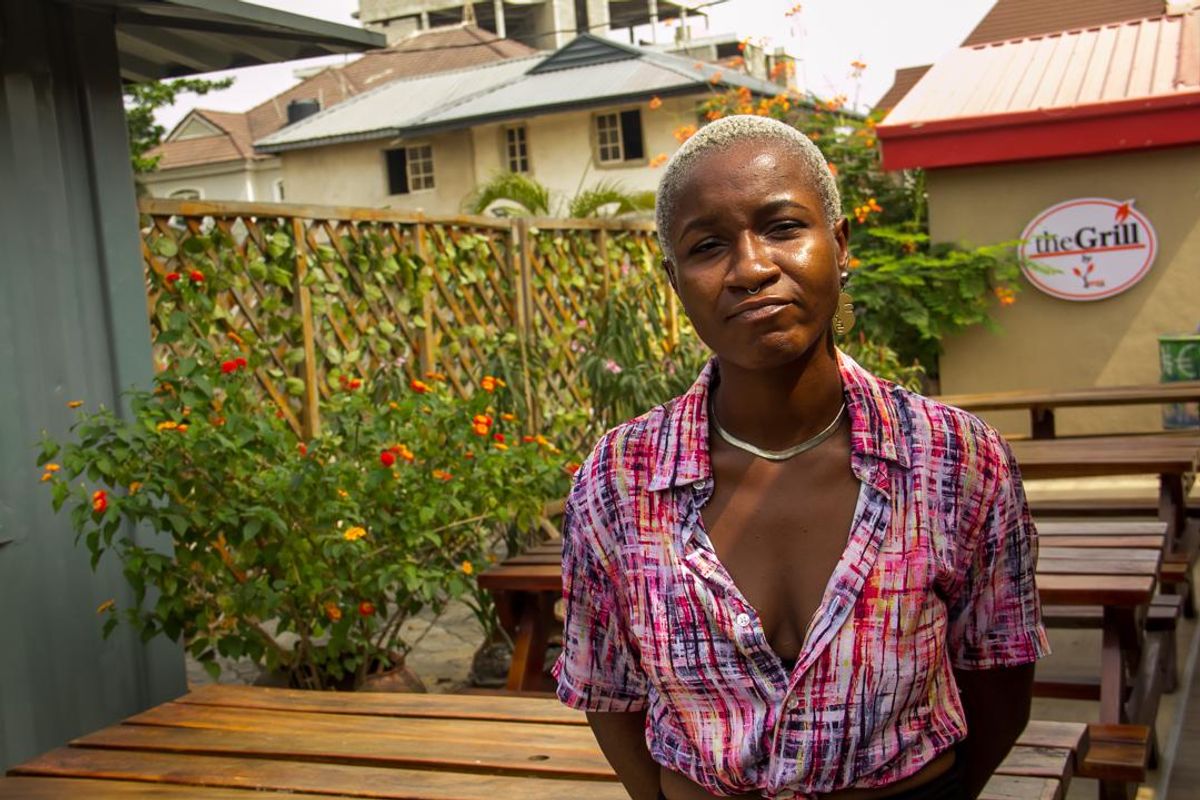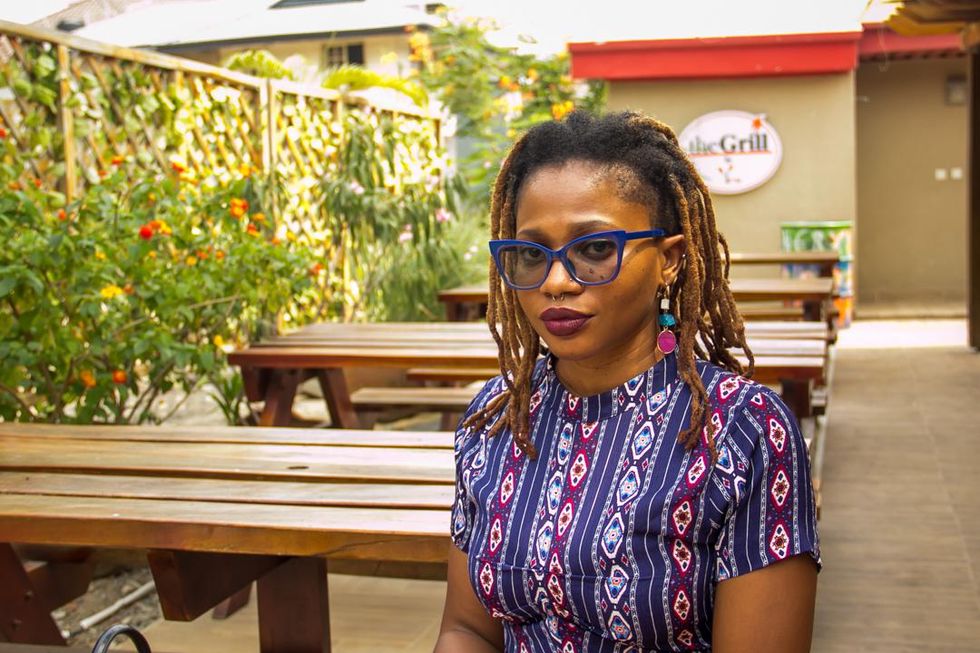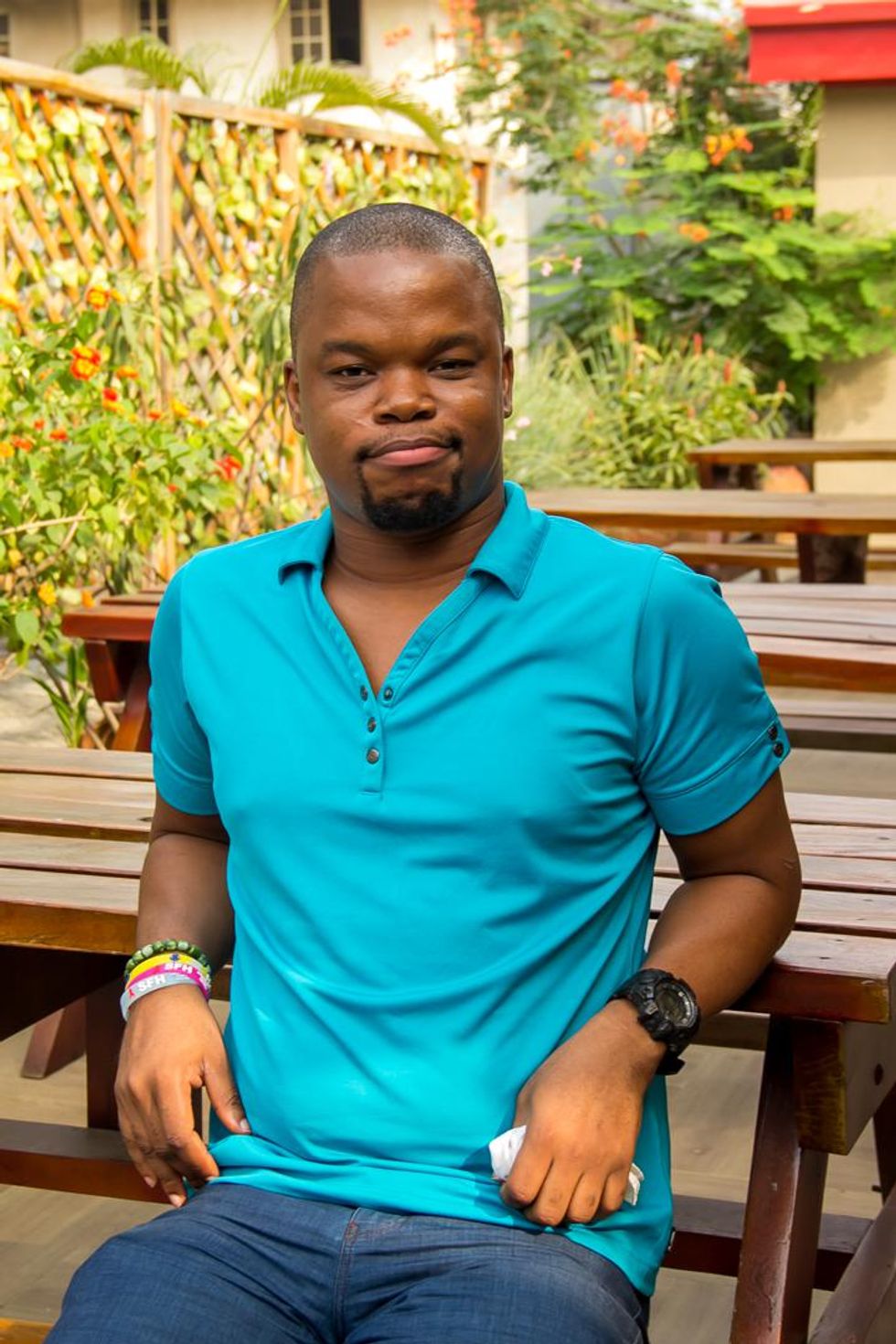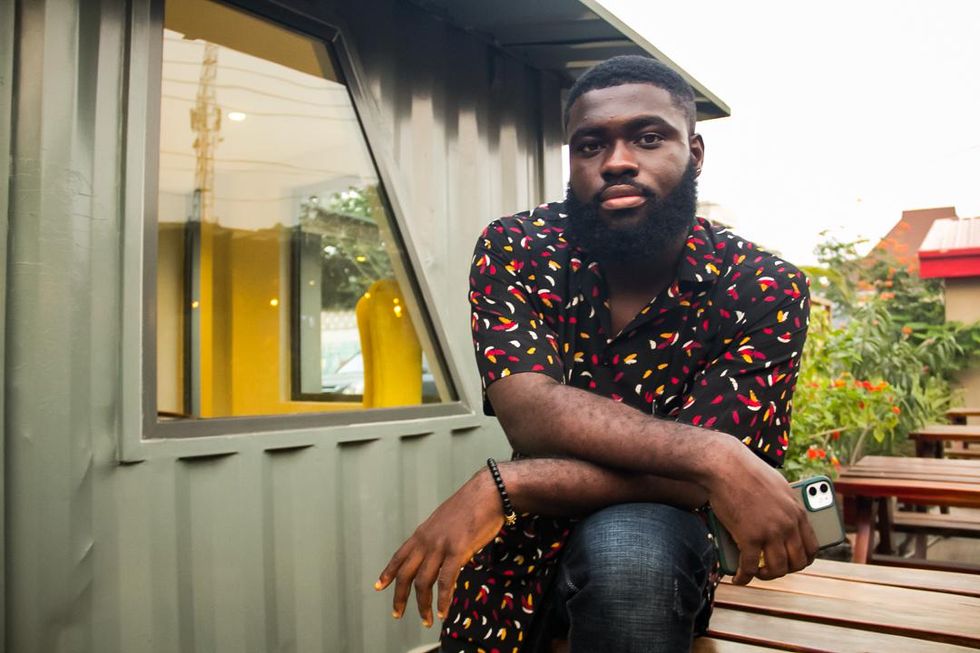'Proud and Unafraid' Details the Trials & Tribulations of Being Queer in Nigeria
We spoke with N’ihu Media founder Bayo Lambo about his documentary ‘Proud and Unafraid' and the power of using storytelling to uplift communities.

Proud and Unafraid covers openly queer people thriving speaking about their experiences in a homophobic country like Nigeria.
Despite the growing online visibility of Nigeria’s LGBTQ community, the reality of their lives is still dire. Shackled by the Same-Sex Marriage Prohibition Act (SSMPA) which criminalizes queer relationships in the country, and an overtly homophobic populace, queer people are forced to live a parallel life in the country far away from the reach of traditional news sources and media organizations.
The lack of documentation in Nigerian media about the LGBTQ community leaves a sizable hole in our national archives, meaning that the lives and activities of successive generations of queer people might be lost to the sands of time. However, thanks to the decentralizing effect of the Internet, new mediums are springing up that allow queer people tell stories of their lives and intricacies of dealing with being a member of the LGBTQ community in Nigeria.
Last year, N’ihu Media, a media agency based in Lagos, released a documentary touching on the lives of four queer Nigerians titled Proud and Unfraid. In the opening sequence of the documentary, culture writer Vincent Desmond, talks about the ways that being gay makes his perspective on life different. “Being gay is something that affects almost anything and everything you do,” he says. “The way you meet people, the way you react to people, the way you compose yourself in public. It’s because you’re always aware that someone who one minute is nice to you could just suddenly flip the moment they are aware that this person might be saying.”
Across 27 minutes, the subjects of the documentary explore coming out, the impact of being queer on their inter-personal relationship, and the cost and burdens of identifying as openly queer in a homophobic country like Nigeria, giving a fantastic insight into how they navigate their lives and the harsh realities of being queer in Nigeria.
Over a Zoom call one busy midday week in mid-June, Bayo Lambo, the founder of N’ihu Media lays out his reasons for green-lighting the documentary, what the process liked like, and his dream for a more empathetic Nigeria.
How did you get the idea to do a documentary of queer experiences in Nigeria?
I’m the owner of N’ihu Media and what we do is that we cover everything Africa. It’s a Pan-African thing and we basically explore the lives of people on the continent and it’s impossible to cover life on the continent without covering the disenfranchised. We try to give an objective view of everything and the community is obviously a disenfranchised one.
The idea for the documentary was brought to me by Hannah Ajala. She’s a BBC reporter that we do stuff together and bounce ideas off each other. She knows the kind of stories I like and so she sends me story ideas from time to time but when she sent that one I said, “Yes, let’s do that, let’s see what we can find.”
Half of the time when I do stories, I do them because I want to know. When I was first thinking about doing this channel, I said something out by mistake and everyone turned and looked at me. I said I’d like to follow people to their homes and everyone turned around and was like, “What’s this guy saying?” But what I meant is that I want to see what everybody is going through. You see me today but you only see a part of me. By the time I shut down this laptop or whatever you don’t know what I’m going through, good or bad. So that’s the main reason we took on this story, for telling those hidden stories. We’re like a baby Vice.
When did you start your production company?
Officially, it was 2020. The first time I put a video out was during the pandemic, that was the first time I put out a production but I had started on the sports side of things. I was covering sports in anticipation of doing stories like this one. I’d done the Shitsuke Flag Football in Nigeria which is a fantastic thing. I played in the league so we put cameras there to get clips of the action.

The lack of documentation in Nigerian media about the LGBTQ community leaves a sizable hole in our national archives.
Photo Credit: N'ihu Media
Speaking specifically about Proud and Unafraid, how important was it to for you to bring representation of the Nigerian queer experience to the fore?
I feel like one thing you have to remember is that everyone is someone’s son, daughter, brother, wife, husband, or child and we need empathy. We need to see other people’s side. I can never understand what you’re going through unless you tell me. I can never understand your choices until I understand why or what set it off. So it is very important that we put ourselves out there and put these kinds of stories out. It’s very good to shed a light on other people’s realities. It’s not easy to see somebody walking down, saying she’s going on a date and when she gets there, there’s a bunch of people waiting just to beat her up. We just need to have more empathy and understand what people are going through.
Can you take me through the selection process for the people you interviewed?
Hannah has been following one of our interviewees and she tried to reach out to them as well as keep me in the loop. Interviewing somebody is one thing and interviewing someone that can convey their pain and their joy is a different thing. The most difficult part of it is getting people to speak out in public and, to me, a lot of these guys are brave and they’re not hiding their lifestyles or they don’t hide themselves. I don’t even call it a lifestyle, they’re not hiding themselves and hey have prominent pages on social media where they discuss their lives openly hence the topic, Proud and Unafraid. With all the setbacks and backlash they face, they’re still brave enough to come out and tell us their stories you know. Hannah found these people, we discussed and decided how best to showcase their stories. Usually, when Hannah says something, as long as we agree, we just go through with it and beat it up as we go.

Proud and Unafraid was produced by N’ihu Media.
Photo Credit: N'ihu Media
A segment of the documentary touches on the lives of the interviewees before being openly queer, what significance does that part of the conversation hold?
If you look at life in general, you can actually pinpoint every stage of your life. You can base your life on before and after something. During primary school, after primary school, during secondary school, after secondary school. You have to understand that these are people that are going through so much, hiding it was easy in one way but difficult in another way, coming out is easy in one way but difficult in another way. Those are the things I wanted to know: how was it when you’re hiding yourself? What was the pain when you’re walking around? One of the reasons I’m very happy to do this is because I have a friend that I grew up with — we went to school together — he moved down to England, and he’s finally come out.
One of the things he was saying was that how he would have to go somewhere where people were gay bashing or whatever and he would have to laugh at that. He would also go home and his parents would say things or preach to him. Basically, your friends and family are doing things as strangers and you just have to keep quiet, so you can imagine the pain to laugh at yourself or to insult yourself. Then when you come out, there is a different pain those same people castigate you also at the end. So, before and after always brings its own good and bad perspectives. With those perspectives, you want the audience to question themselves and ask if this person would have chosen this life willingly if it was so bad and difficult. I can’t fathom it when people say being queer is a choice. If it was a choice, nobody would be willing to sacrifice jail time or their life on the continent. When you put out a show like this you just want people to be able to see the whole picture and put themselves in people’s place.

“Being gay is something that affects almost anything and everything you do,” culture writer Desmond Vincent said.
Photo Credit: N'ihu Media
One of the points raised by Desmond Vincent was that re-educating Nigerians is part of the way forward. Do you consider Proud and Unafraid a part of the re-education process or is it just a picture of what’s happening?
The thing is people go around life with this feeling that if it’s not me, then it’s OK and we can say this for so many things: the plight of Black people, of Africans, and anywhere you can find a disenfranchised community. We need everybody to start speaking up for someone or something. We need to be able to see human beings first. If consenting adults are walking around, we need to be able to see that they are human beings we are talking about. So, to me, I think that’s the most important thing the documentary is trying to say, that they’re your neighbor.
Do you think you would want to explore the realities of the LGBTQ community in other countries on the continent, do you think that might happen down the line?
It would be a blessing to. It will be fantastic, it’s something we would like to do, the only reason we haven’t been able to do it is that finding the right people to get these stories is not always easy. You have to remember that finding people to speak out is hard because this is Africa. There are certain laws that don’t cater to the community and that is the difficult part. But once we find people that are Proud and Unafraid, we will be there to hear their stories.
- Africa is Queer!: LGBTQI+ African Life in 2020 - OkayAfrica ›
- Photos: Nigerians Go All Out To Stand Up For LGBT Rights ... ›
- The Silent T in Nigeria's LGBT Community - OkayAfrica ›
- An Inside Look Into the Underground Queer Party Scene in Nigeria - OkayAfrica ›
- An Inside Look Into the Underground Queer Party Scene in Nigeria - OkayAfrica ›

